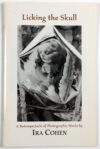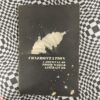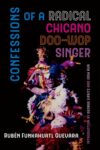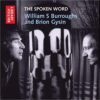
The Rose That Grew from Concrete (paperback)
His talent was unbounded — a raw force that commanded attention and respect.
His death was tragic — a violent homage to the power of his voice.
His legacy is indomitable — as vibrant and alive today as it has ever been.
Tupac Shakur’s most intimate and honest thoughts were uncovered only after his death with the instant classic The Rose That Grew from Concrete.
For the first time in paperback, this collection of deeply personal poetry is a mirror into the legendary artist’s enigmatic world and its many contradictions.
Written in his own hand from the time he was nineteen, these seventy-two poems embrace his spirit, his energy — and his ultimate message of hope.
VOYA
When nineteen-year-old Shakur joined the writing circle of Leila Steinberg, as she relates in her introduction to this collection, he became its leading force. The young rapper-to-be wrote love poems, distressed poems, depressed poems. There is passion here, including anger, but this poetry is far more gentle, albeit less powerful, than the rap lyrics that would make him infamous. Each poem is presented in his handwriting as well as in typeface, an engaging device. Poems such as “What Can I Offer Her” and “Government Assistance or My Soul” bemoan unemployment, and the title poem celebrates growth in spite of obstacles. The love poetry is gentle; the theme is often responsibility. The misogynist of some of the rap lyrics does not appear on these pages, and the object of the writer’s affections is not always female. This book will fly off the shelves. Many teens will see themselves as future poets/lyricists; from gangsta rap to Paul Anka, it is all poetry. Nevertheless Shakur’s rap lyrics, none included here, are much more effective poetry. However one might wish to clean up both their words and intent, they sing from a place that many are, mercifully, unlikely to experience. Was Shakur a dangerous gangsta wannabe who precipitated his own murder by attacking a Crip, or was he a misunderstood but talented poet and performer—or was he both? This slim volume of Shakur’s youthful poems, collected by his manager, Steinberg, and published with the permission of the rapper’s mother, will not answer the question. Nevertheless it might allow the reader to see the hopelessness that the author felt as a young black male, a poet who thought he had to be tough to survive and whose posturing killedhim. It is strongly recommended that librarians and teachers read his rap lyrics if they have not already done so. Shakur’s lyrics are currently posted on the Internet at http://www.tupac.net/lyrics. After reading this poetry collection, the raps are not only frightening, they are also sad. To paraphrase the poster from the United Negro College Fund, a mind is, indeed, a terrible thing to waste. Illus. Photos. VOYA CODES: 3Q 5P J S (Readable without serious defects; Every YA (who reads) was dying to read it yesterday; Junior High, defined as grades 7 to 9; Senior High, defined as grades 10 to 12). 1999, Pocket Books/S & S, 151p, $20. Ages 13 to 18. Reviewer: Lynne Hawkins
$ 16.00
In stock




